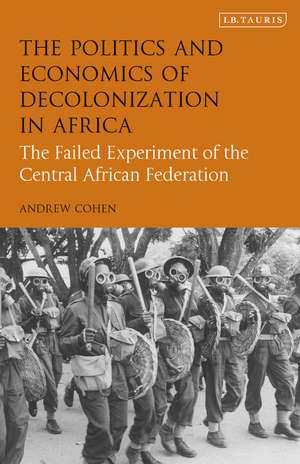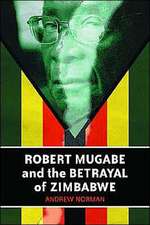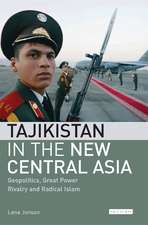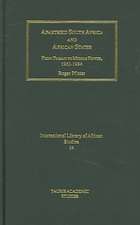The Politics and Economics of Decolonization in Africa: The Failed Experiment of the Central African Federation
Autor Andrew Cohenen Limba Engleză Paperback – 25 dec 2019
| Toate formatele și edițiile | Preț | Express |
|---|---|---|
| Paperback (1) | 231.16 lei 6-8 săpt. | |
| Bloomsbury Publishing – 25 dec 2019 | 231.16 lei 6-8 săpt. | |
| Hardback (1) | 715.34 lei 6-8 săpt. | |
| Bloomsbury Publishing – 25 mai 2017 | 715.34 lei 6-8 săpt. |
Preț: 231.16 lei
Preț vechi: 297.28 lei
-22% Nou
Puncte Express: 347
Preț estimativ în valută:
44.24€ • 45.70$ • 36.82£
44.24€ • 45.70$ • 36.82£
Carte tipărită la comandă
Livrare economică 25 martie-08 aprilie
Preluare comenzi: 021 569.72.76
Specificații
ISBN-13: 9780755601059
ISBN-10: 075560105X
Pagini: 320
Ilustrații: 1 map
Dimensiuni: 138 x 216 x 15 mm
Greutate: 0.36 kg
Editura: Bloomsbury Publishing
Colecția I.B.Tauris
Locul publicării:London, United Kingdom
ISBN-10: 075560105X
Pagini: 320
Ilustrații: 1 map
Dimensiuni: 138 x 216 x 15 mm
Greutate: 0.36 kg
Editura: Bloomsbury Publishing
Colecția I.B.Tauris
Locul publicării:London, United Kingdom
Notă biografică
Andrew Cohen undertook his research at the Universities of Sheffield and Oxford, and is currently Postdoctoral Research Fellow in the Department of Historical and Heritage Studies at the University of Pretoria.
Cuprins
Introduction: Situating FederationThe introduction will provide an up-to-date historiographical survey of theFederation and situate what follows in the wider literature on decolonization andAfrican history.Chapter 1: Towards federationThis chapter will discuss moves towards a closer association of Britain's centralAfrican territories, explore why these moves failed to come to fruition, and detail thefinal adoption of the Federal scheme and its early years.Chapter 2: The pipedream of partnership, 1957-1959Chapter 2 will explore the first signs of pressure on the Federation, in central Africaand Britain, from the settler government's Constitutional Amendment Bill to theoutbreak of the Nyasaland Emergency.Chapter 3: Pressure mounts, 1960-61.This chapter will provide a fresh interpretation of the Nyasaland emergency in 1959and evaluate the impact of both the Devlin and Monckton Commissions on theFederation's prospect for success.Chapter 4: The 'wind of change', 1962-1963.Chapter 4 will discuss developments and debates across the final years of theFederation which culminated with its eventual dissolution at midnight on 31December 1963.Chapter 5: The business of Federation, 1957-1963.This chapter provides a new interpretation of the activities of the two major miningcompanies in the Federation, the South African mining giant Anglo American and theUnited States owned Rhodesian Selection Trust. It expands on my previous work inthis area to argue for a different interpretation of the role of multinational business incentral Africa during this period.Chapter 6: Federation in the wider-world, 1957-1963.Decolonization in Central Africa, This chapter provides the first detailed assessment of the Federation as an issue in thewider world community. As such it focuses on how the Federation was perceived andinfluenced by its relationship with South Africa, the United States and the UnitedNations.ConclusionThis chapter summarizes the book's main findings.












